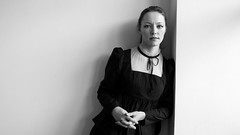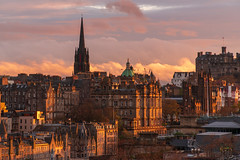
The controversial convention at Barrio Tejeros. Many historians acknowledge that the first election in Philippine history was held here.
Significantly, our country’s first president, Emilio Aguinaldo, was not elected by the Filipino people. He was elected by his Katipunan comrades and fellow Freemasons in Tejeros, San Francisco de Malabón (now General Mariano Trías), Cavite, a controversial historical event which is now known as the Tejeros Convention. That first election was exercised not to choose a leader to lead a nation but to lead the rebellion against Spain because during that time, the revolucionarios were divided into two factions: the Mágdalo, led by Aguinaldo and his cousin Baldomero Aguinaldo, and; the Magdiwang, led by Mariano Álvarez.
To pacify and unite the warring factions, which already have their own respective local governments in most of Cavite and other neighboring provinces (those that they captured from the Spanish government), Álvarez invited Katipunan supremo Andrés Bonifacio to mediate in a convention that was supposed to discuss military matters against Spain. But in the end, an election was held to decide who should lead the rebellion once and for all. This happened on 22 March 1897.
The closed-door election among these high-ranking Katipuneros/Freemasons resulted in the presidency of Mágdalo’s Emilio Aguinaldo (who was absent during that time). The convention chose Magdiwang’s Mariano Trías as Aguinaldo’s Vice-President. Meanwhile, Bonifacio was chosen as the Director of the Interior.
Alas, a certain Daniel Tirona questioned the results of the election. He argued that a lawyer should rightfully hold the position of Director of the Interior, even going as far as suggesting another person for the post. Naturally, this insulted Bonifacio. If not for intervening hands, Bonifacio would have shot Tirona. The angry supremo subsequently nullified the result of the proceedings before walking out from it, declaring that he is still the undisputed leader of the Katipunan from which both factions originated. This of course didn’t sit well with the other officials. The rest, as they always say, is history (Bonifacio’s orchestrated trial and execution, the proclamation of a premature independence, the US invasion, etc.).
According to eminent historian Ambeth Ocampo, however, the Bonifacio-Tirona tussle was not enough reason for the Katipunan Supremo to walk out of the proceedings just like that. As per Ocampo’s investigation, one major reason for the walkout was electoral fraud.
Yep, then as now.
Aguinaldo’s cohorts were supposed to be the first “sons of democracy” in this country, but they proved not to be worthy. Understandably, though, the situation back then didn’t allow suffrage a clean chance. For one, the first election was not even national — it was strictly Masonic. Secondly, the first “politicians”, most of whom were Freemasons, were still being taught the rudiments of republicanism and the ideals of democracy — the scourge of a monarchical form of government which had secured and succored the archipelago for hundreds of years. Thirdly, the Philippines was not only at war with Spain but was also wary of US military presence (particularly the fleets which arrived in Manila Bay) brought about by the Spanish-American war. But still, the process was tainted with irregularities, a sickening legacy which we still carry on even in this age of automated elections — the new system, sadly, still has the stigma of distasteful imperfections (“birth pains” or no “birth pains”) because a number of Precinct Count Optical Scan machines bogged down; and just when things seemed to flow out smoothly, sh!t happens!.
However, during the American interlude, the right of suffrage as we know it today was born. Technically, the first election that took place was a municipal one; it happened in Baliuag, Bulacán on 6 May 1899 under the auspices of American military Governor General Arthur MacArthur of which not much is known. But the first national elections in which the whole country was involved were held on 30 July 1907. The Filipinos elected the members of the first Philippine Assembly, the legislative body during the first few years of the US’ illegal reign in the country. Eighty one delegates to the National Assembly were elected while non-Christian provinces and districts having their own special governments were represented by appointees of then Civil Governor James Francis Smith.
Curiously, the newly elected assembleymen were no different from Noynoy Aquino who, as of this writing, is leading in the canvassing of votes in the recently concluded 2010 Philippine National Elections: most were generally young (between 31 and 40 years of age), well-educated, and filthy rich. Around 20 had a stint in the Spanish colonial government, and more than 50 were officials of the ill-fated Malolos government.
Then as now, the elite ruled the legislature. Worse, one of the first bills that these pro-American pigs passed was an increase in their per diem salary! And some even attempted to pass a bill exempting their properties from taxation!
Their apologists may claim that they were still inexperienced when it comes to democratic governance, that a republican form of government is not for personal aggrandizement nor profit. But the abovementioned political immaturity metamorphosed into a much higher form of (subtle) notoriety today. Take this one for instance: don’t you find it insanely immoral to impose Value Added Tax on food, a very basic commodity? If you don’t, I guess I am but a talkative, cynic, and unprincipled ignoramus doltishly questioning as to why the poor are always hungry. And then we have the C-5 road extension and the NBN-ZTE scandals, political dynasties, lawmakers lashing out unparliamentary language against each other, and the like. And such @$$hole-like behavior provokes some of their colleagues to become mentally out of control.
This is the true historical picture of our Philippine electoral system. Conclusion: we have not learned much from our past mistakes. No wonder Alexis-Charles-Henri Clérel de Tocqueville quipped that “in a democracy, people get the government they deserve.”
You allowed yourselves to be fooled by emotions brought about by last year’s unprecedented events. You allowed yourselves to be fooled by ABS-CBN. You thus allowed yourselves to vote for a color that has been long dead and proven ineffective. You, therefore, deserve the consequences. You will get the government you deserve.
Democracy —the warmachine of the US WASPs, and a clever disguise for mob rule— is but a sham. And history proves it every time.







Understanding and honoring our past enables us to face the future in full frontal. No delusions. No sugar coating. Hope starts when we do away with the “chaos and flawed logic”.
VIGILANCE doesn’t stop this election period. We should never forget the lessons of history, but in reality we always do.
LikeLike
BTW, I featured your article at the Minsan may isang Puta wall >
http://www.facebook.com/pages/Minsan-may-Isang-Puta/359475606984?v=wall
LikeLike
Thanks! =)
LikeLike
Your point? That Filipinos are hopeless and are a bunch of sh**t? What to you is a better alternative then – a Marcosian type of dictatorship? Or a dictatorship of the proletariat meaning of the CPP/NDF?
LikeLike
¡Devuelva la monarquía!
LikeLike
@ Pepe – I’m surprised that this blog is still in business LOL
@ rollingstone – we have to reassess our idea of democracy. An alternative form of gevernment is a rational possibility. We have never proven that democracy works. No doubt, we have our freedoms but economically and socially, we have been chained into a cycle of struggle. A nation that calls itself a democracy but is terribly burdened by extreme poverty, is what you call a third world state. Under our present circumstances, buried in debt, we are at the mercy of the financial lords. Venezuela? why not? bring the power back to the people, lets use our resources!
LikeLike
Pingback: Justo Lukbán « FILIPINO eSCRIBBLES
Reading it, refreshed and added to my knowledge of our history. It, also, answered our search for the first Philippine election. Thanks!
LikeLike
What do you mean by moderation on my comment?
LikeLike
What is it that Winston Churchill said? “Many forms of Government have been tried and will be tried in this world of sin and woe. No one pretends that democracy is perfect or all-wise. Indeed, it has been said that democracy is the worst form of government except all those other forms that have been tried from time to time.”
For all its problems, democracy is still better than other forms of government, in the long run. Sure, other forms may be OK if the country is lucky to have good leadership. But what if they don’t? Given human nature, the chances of having scoundrels or incompetents in power is higher than saints. Then what? Democracy is the only system that provides an organized, peaceful, legal and regular way to get rid of the bad leaders. They may be replaced with equally bad leaders, or worse leaders, but there at least is a change and therefore the chance for something better. Plus they are only in power for so long. Also, democracy and limited government limits the damage that bad leaders can cause.
Democracy is not about reaching for the stars and achieving the impossible dream of perfection. but about avoiding the worst of the worst.
LikeLike
hi,
you have a very interesting article. i hope you dont mind if i share this to my students.
ps. i will defintely recognize you in my class.
good job sir!
LikeLike
Thank you. It’s an honor.
LikeLike
Pasensya na pero sa aking pagbabasa sa umpisa palang ng kasaysayan ng Pilipinas madami nang makasarile tulad ni Daniel Tirona. Di ko mainitindihan kung bakit ito ay tinatawag na bayani, naging dahilan ng hindi pagkakaunawaan ni Bonifacio at Magdalo at higit sa lahat ang pagsuko sa mga Amerkano na hindi manlang lumaban kahit pa ang kanyang kawal ay isa sa pinaka well equipt. Ang taong ito hindi dapat ginoglorified as a hero, isang traidor, balimbing at makasarile.
LikeLike